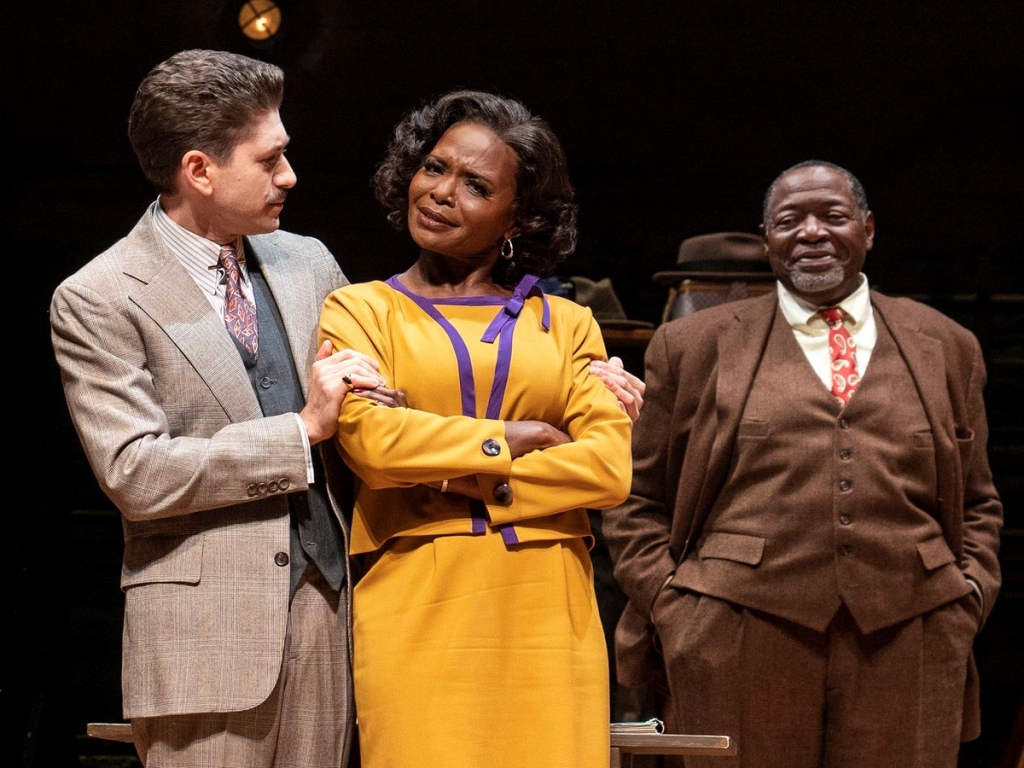TROUBLE IN MIND
by Alice Childress
Directed by Charles Randolph-Wright
A Production of the Roundabout Theatre Company
American Airlines Theatre
Official Website
Reviewed by David Spencer
There’s a lot to admire about Trouble in Mind by Alice Childress; the time in which it was written and first debuted marks it as one of history’s overlooked trailblazers, dramatizing an aspect of the black experience in America that not even the most fervent Civil Rights activist/dramatists were tackling: the treatment of the black American experience in drama. More specifically, the manner in which black actors and actresses might need to interact with the white Powers That Be in order to hold and keep a job, in the service of a white writer’s vision. The points made about this are pithy, witty, and interesting—and if not altogether the “news” in 2021 that they may have been in 1957, one can still appreciate how bracingly courageous it must have seemed in its time.
But there are problems that are hard to overcome too. The author of the new play being rehearsed is nowhere present. The seeming protector of the text is the manipulative director (Michael Zegen). Perhaps Ms Childress saw the need to conflate authority figures into one character, and the director of a stage production certainly must be the central figure in charge…but as the legitimacy of the rehearsing play’s text and truth are more and more vehemently thrown into question by its lead actress (who is also Ms Childress’ main character, played by LaChanze), it seems downright odd for her to be discussing changes with someone who cannot contractually make them, and can at best pass along the message, if he so chooses.
And as undermining…the play being rehearsed is simply not convincing as a “real” play. Set in antebellum slave South, everything about it is contrived satirically, to emphasize its white author’s total disconnectedness from black reality. And thus you can’t buy into it as a play that actually would have been written. It doesn’t go far enough into the Kyle Onstott Mandingo territory that defined a whole subgenre of melodramatic sex-and-miscegenation exploitation; nor does it pull back enough to seem a sincerely written but misguided play of ideas that can be vigorously debated. In some wise, this may be inevitable: since the entire play doesn’t exist, the false excerpts must be crafted to demonstrate self-evident absurdity. But in showing her hand so explicitly, Ms Childress denies audiences of any ethnicity the power of discovery; and denies white audiences the discomfort of self-recognition. The play coming off as a satirical comment makes it about other white people’s prejudice, and not our own unrecognized misperceptions. The satirical approach makes the play-within-a-play funnier…but I think those laughs come at cost to the whole.
What remains then, to keep things aloft, are the members of a gifted ensemble capable, under the direction of Charles Randolph-Wright, of mining Trouble in Mind for every bit of subtlety and nuance it has to offer up. Which is enough for an evening’s entertainment and for getting the point. But the script itself makes it hard to feel the point; and that indeed is the trouble in mind.
